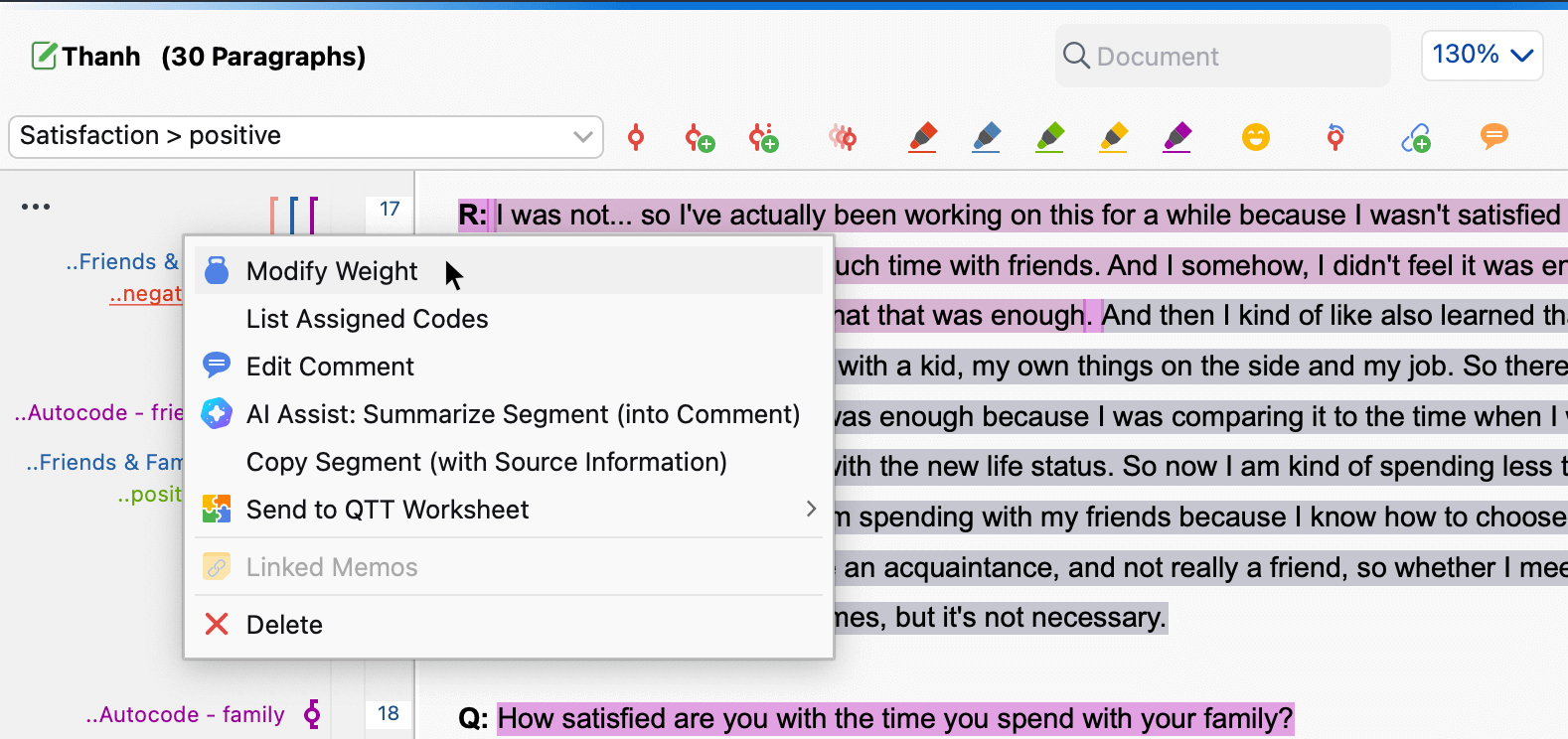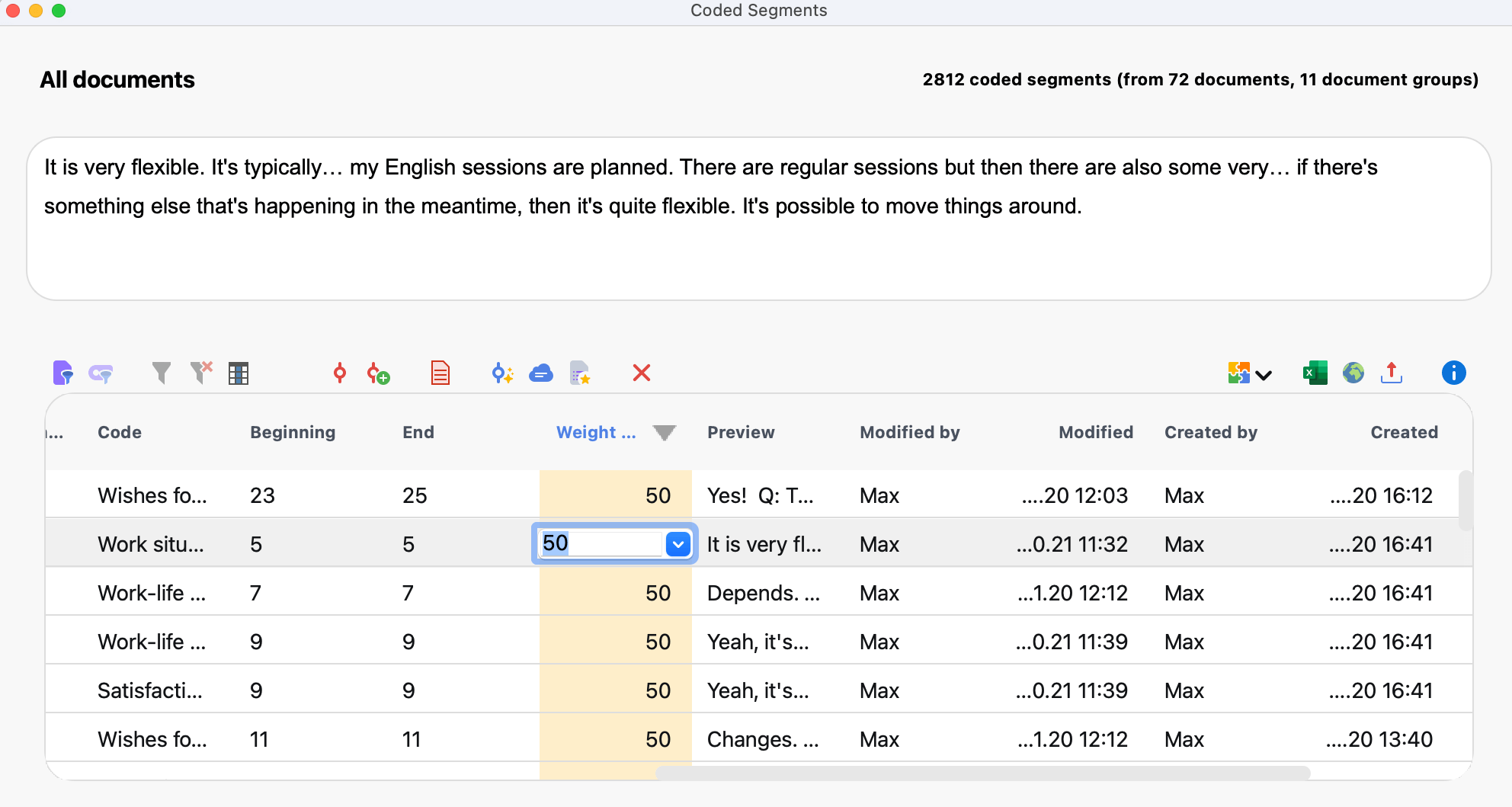When coding a document, you are attaching a segment of a text or image to a code in the “Code System”. MAXQDA also allows you to assign a weight score to each of these coded segments to indicate how important that particular coded segment is. It may be that certain coded segments represent a typical argument or theoretical concept that you want to be sure and hold on to. In this case, these segments are a sort of signpost.
MAXQDA allows you to indicate how important or appropriate a segment is for the code it is coded with by giving it a weight score between 0 and 100. This weight score could be described as a “fuzzy variable”, because it is not meant to give an exact numerical worth for the segment. Rather, it is intended to be a guide, so you can later sort your retrievals based on the weight assigned.
The weight score can later be used as a sorting criterion for coded segments. In numerous analysis functions it can be used as a selection criterion, allowing you to include only coded segments with a specific weight into your analysis.
When you use MAXQDA for the first time, the default weight will be set to 0. This can be changed in the global preferences that you can open in the lower left corner of the MAXQDA main window.
Code weight score display
The weight of a coded segment is shown in the source information below each retrieved segment in the “Retrieved Segments” window. It is displayed behind the code name in brackets.

When sorting the coded segments in the “Retrieved Segments” window by weight, they are sorted in groups of 10, i.e. 0-10, 11-20, etc.
The “Overview of Coded Segments”, for example, which is available for document groups, each individual document, and the whole project, also includes the weight scores for each coded segment.
Adjusting the weight score for coded segments
When coding, the default weight score is always used automatically. A different weight score can either be assigned in the window “Document Browser“, in the “Retrieved Segments“ window, or in the “Overview of Coded Segments“.
Assigning weight scores in the “Document Browser”
- Right-click on the coding stripe for the coded segment that you would like to alter the weight score for.
- Select Modify Weight.
- You can then enter a number between 0 and 100.

Assigning weight scores in the “Retrieved Segments” window
A weight score can also be assigned and modified in the “Retrieved Segments” window. Right click anywhere on the coded segment or on the coding stripe displayed next to it to open a context menu, where you can select Modify Weight and enter a number from 0 to 100.
Assigning weight scores in the “Overview of Coded Segments”
In the “Overview of Coded Segments” table, you will find a column for the weight score of each coded segment. By double-clicking on a cell in the column, you will be able to enter a new weight from 0 to 100.

